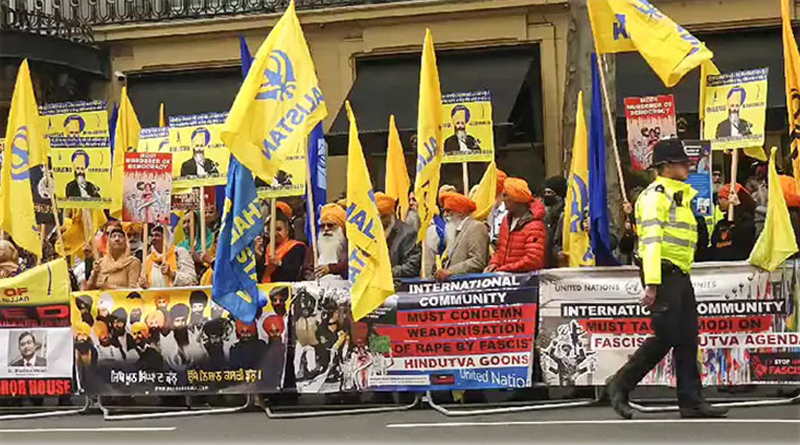No tolerance for terrorism: The world’s stance on Pannun’s terror threats

In a resounding show of unity against the glorification of terrorism and threats to aviation security, the United States and other nations have firmly condemned the recent actions of Gurpatwant Singh Pannun, the General Counsel of Sikhs for Justice. Pannun’s inflammatory remarks have raised serious concerns and prompted a strong response from governments and advocates for peace and security.
Pannun’s alarming actions were brought to the forefront when he released two videos in which he issued warnings to the Sikh community not to travel with Air India on November 19, 2023, claiming it would be dangerous. Additionally, he threatened to close New Delhi’s Indira Gandhi International Airport on that same day. It is crucial to note that November 19 holds significance as both the late Prime Minister Indira Gandhi’s birthday and the final of the ICC World Cup. These threats bear an eerie resemblance to those made by Khalistani activists prior to the tragic Air India bombing in 1985, underscoring the gravity of the situation.
Furthermore, Pannun went on to glorify the political assassination of General Vaidya and boasted about Sikhs taking revenge on both Indira Gandhi and General Vaidya. He openly praised the killers of General Vaidya, even referencing a display at a nagar kirtan in a gurdwara in Yuba City, California. These actions have rightly raised concerns about the promotion of terrorism and the potential risks they pose to innocent lives.
The international community, including the United States, has been quick to denounce Pannun’s actions. When questioned about whether the U.S. considers such threats and terrorism glorification as an acceptable form of free speech, a State Department spokesperson responded with a clear and unambiguous stance: “Violence, or the threat of violence, is never an acceptable form of activism.” This unequivocal rejection of violence as a means of activism underscores the importance of peaceful and lawful expression of opinions.
Ujjal Dosanjh, former Canadian federal minister and British Columbia’s 33rd Premier, raised pertinent questions about why action has not been taken against Pannun. He emphasized the need to prosecute Pannun for terrorizing U.S. citizens, particularly those who may be of Sikh descent and travel with Air India. Dosanjh expressed his disappointment with the lack of a strong response from American and Canadian politicians in the face of Khalistani extremism, especially when compared to their swift condemnation of other instances of glorifying violence.
Veteran Canadian journalist Terry Milewski drew attention to the historical context, pointing out that Pannun’s threats about Air India eerily resemble the warnings issued before the Air India bombing in 1985. He emphasized the seriousness of the situation, given the violent history associated with such threats.
Canada’s normalization of threats and the glorification of terrorists is also a cause for concern. Despite having a law against incitement of violence, there is currently no specific legislation in Canada against the glorification of terrorism. Milewski argued that glorification is often a form of incitement, highlighting the need for more comprehensive legal measures to address this issue.
Khalistani extremism is not limited to a single country; it has extended its reach to Canada, the UK, and now the United States. Puneet Sahani, a Sikh activist coordinating content for Sikhs for Enlightenment Values Association (SEVA), highlighted the pervasive presence of extremist groups that use online platforms to spread hate speech and radicalize individuals. These groups exploit democratic freedoms to undermine society from within, posing a threat to the values of peace and coexistence.
In a worrying trend, Khalistani extremists are becoming more visible in the United States, with gurdwaras increasingly showing signs of radicalization, such as portraits of extremists, Khalistani flags, and the glorification of terrorists. The international community must remain vigilant and act decisively against such extremist activities to preserve peace, security, and democratic values.
(Image and text credit: Khalsavox.com)




